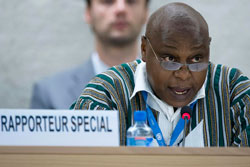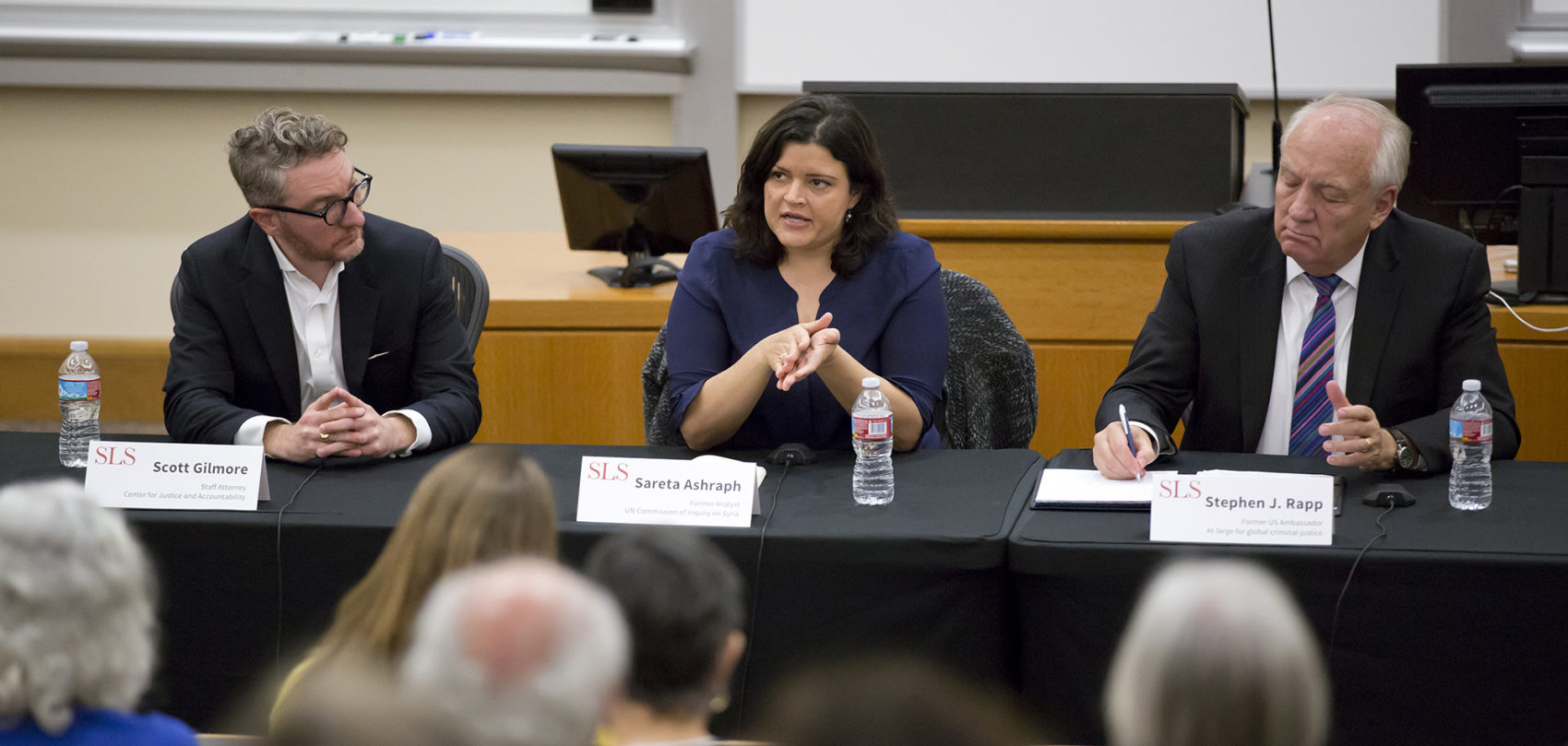Overview
The Global Practitioner in Residence program awards one leading practitioner in the field of human rights, rule of law or law and development the opportunity to spend one academic quarter at Stanford Law School as a practitioner-in-residence.
The practitioner will have the opportunity to collaborate with thought leaders and connect with program resources throughout the law school and university, as well as share strategies with social justice leaders throughout the Bay Area. The opportunity would be ideally suited for someone who is at an inflection point in their career, and has a research or strategic planning project that would benefit from being housed in an academic environment.
The practitioner will be expected to take on some teaching responsibilities, to be shaped by the practitioner’s interest and expertise. The practitioner in residence period will take place during the Winter Quarter (the months of January, February and March) subject to the schedule of the individual selected.
The program will cover travel and living costs for the academic quarter as well as a modest stipend.
2017-2018 Global Practitioner in Residence

The Stanford Law School Levin Center for Public Service and Public Interest Law is excited to announce that we have selected Maina Kiai as our Global Practitioner in Residence for winter quarter 2018.
Mr. Kiai was the United Nations Special Rapporteur on the rights to freedom of peaceful assembly and of association from 1 May 2011 until 30 April 2017.
Mr. Kiai has spent the last twenty years campaigning for human rights and constitutional reform in Kenya – notably as founder and Executive Director of the unofficial Kenya Human Rights Commission, and then as Chairman of Kenya’s National Human Rights Commission (2003-2008), where he won a national reputation for his courageous and effective advocacy against official corruption, in support of political reform, and against impunity following the violence that convulsed Kenya in 2008, causing thousands of deaths.
From July 2010 to April 2011, Mr. Kiai was the Executive Director of the International Council on Human Rights Policy, a Geneva-based think-tank which used to produce research reports and briefing papers with policy recommendations. Mr. Kiai was also the Director of Amnesty International’s Africa Programme (1999-2001), and the Africa Director of the International Human Rights Law Group (now Global Rights, 2001-2003). He held research fellowships at the Danish Institute for Human Rights (Copenhagen), the Woodrow Wilson International Center for Scholars (Washington), and the TransAfrica Forum (Washington).
He currently works as co-director of InformAction, a community organizing NGO in Kenya.
In 2014, Freedom House awarded Mr. Kiai its Freedom Award for his work in Kenya. The award was begun in 1943 “to extol recipients’ invaluable contribution to the cause of freedom and democracy.” In October 2016, Mr. Kiai received the United Nations Foundation‘s Leo Nevas Award for his work as Special Rapporteur. The award recognizes “those who have served as agents of change in advancing international human rights.” In December 2016, he was awarded the AFL-CIO’s George Meany-Lane Kirkland Human Rights Award “in recognition of his dedication to and effectiveness in highlighting the widespread denial of fundamental human rights at work and in society.”
2016-2017 Global Practitioner in Residence
Sareta Ashraph joined us during Winter Quarter 2017 as our inaugural Global Practitioner in Residence. She mentored students; led a strategic convening on mechanisms for human rights accountability in the Syrian conflict; and engaged in research and writing on the gendered nature of the genocide of the Yazidis, and the viability of future international prosecutions for attacks on medical care.
For much of her career, Sareta Ashraph has worked to uncover the truth behind some of the worst conflicts in the world. She has investigated human rights abuses including murder, torture, and rape, and has spoken to people traumatized by what they have seen and experienced.
From April 2012 until 2017, Sareta was the Chief Legal Analyst on the international independent Commission of Inquiry on the Syrian Arab Republic. She was primarily responsible for the Commission’s analysis of alleged breaches of international law by Government forces, anti-Government armed groups, Kurdish armed groups, and extremist groups such as the Islamic State of Iraq and Al-Sham. She was also the principal drafter of the Commission’s reports, and researched and drafted the Commission’s report “They Came to Destroy: ISIS Crimes against the Yazidis, which determined that ISIS was, and is, committing the crime of genocide. She was heavily involved in efforts to advocate for a Security Council referral to the International Criminal Court, or an ad hoc tribunal.
She had the same role for a commission of inquiry on Libya during the final period of the Qaddafi regime, producing a report documenting crimes against Libyans and minorities. She has previously worked for the U.N. as part of a team conducting investigations for the Fact-Finding Mission on the Gaza Conflict and at the International Criminal Court as a legal advisor for the Office of the Public Counsel of the Defense.
A native of Trinidad and Tobago, Sareta first became energized by issues of justice in her home country, where as a teenager she advocated for women’s rights. Later, she developed an understanding of law as a tool to empower people marginalized in society and she became a defense lawyer (currently her practice isn’t active because of her international work). For several years, she lived in Sierra Leone as a member of the defense team representing Issa Sesay, a leader of the Revolutionary United Front who would be sentenced to 52 years for war crimes and crimes against humanity.
Application Information
The practitioner will be selected by the Dean of Stanford Law School in consultation with staff of the Levin Center for Public Service and Public Interest Law. Criteria for selection will include:
- Demonstrated impact in a relevant field of work
- Timeliness of practitioner’s proposed project
- Practitioner’s relationship with an established NGO or other entity that will provide ongoing support for the project and work
- Impact the opportunity could have on the proposed project and the practitioner’s personal and career development
- Synergies and opportunities for leverage with faculty research and the research agenda of others programs and centers at Stanford Law School and University.
- Extent to which the practitioner is a compelling mentor and resource for Stanford Law School’s students


